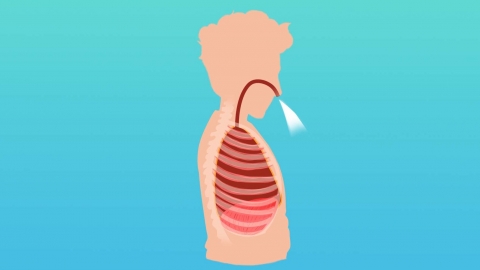Can abdominal breathing reduce the risk of pneumonia?
Generally speaking, diaphragmatic breathing can reduce the risk of pneumonia to some extent, but it cannot provide complete prevention. The detailed explanation is as follows:

Diaphragmatic breathing deepens and slows down respiration, allowing the lungs to expand and contract more fully, which helps enhance lung function and increase vital capacity. By increasing lung capacity, more alveoli participate in respiratory activities, enabling greater oxygen intake and delivery throughout the body. By exercising the diaphragm, diaphragmatic breathing improves respiratory efficiency and pulmonary ventilation, helping reduce the incidence of cardiopulmonary diseases. Additionally, by enhancing respiratory function and lung capacity, it helps lower the likelihood of lung infections, including pneumonia.
Although diaphragmatic breathing may assist in reducing the risk of pneumonia, it cannot fully prevent it. To further reduce the risk of developing pneumonia, it is important to maintain warmth in daily life and avoid getting chilled. Smoking should also be avoided, and regular physical exercise should be performed to strengthen physical fitness and improve immunity.






